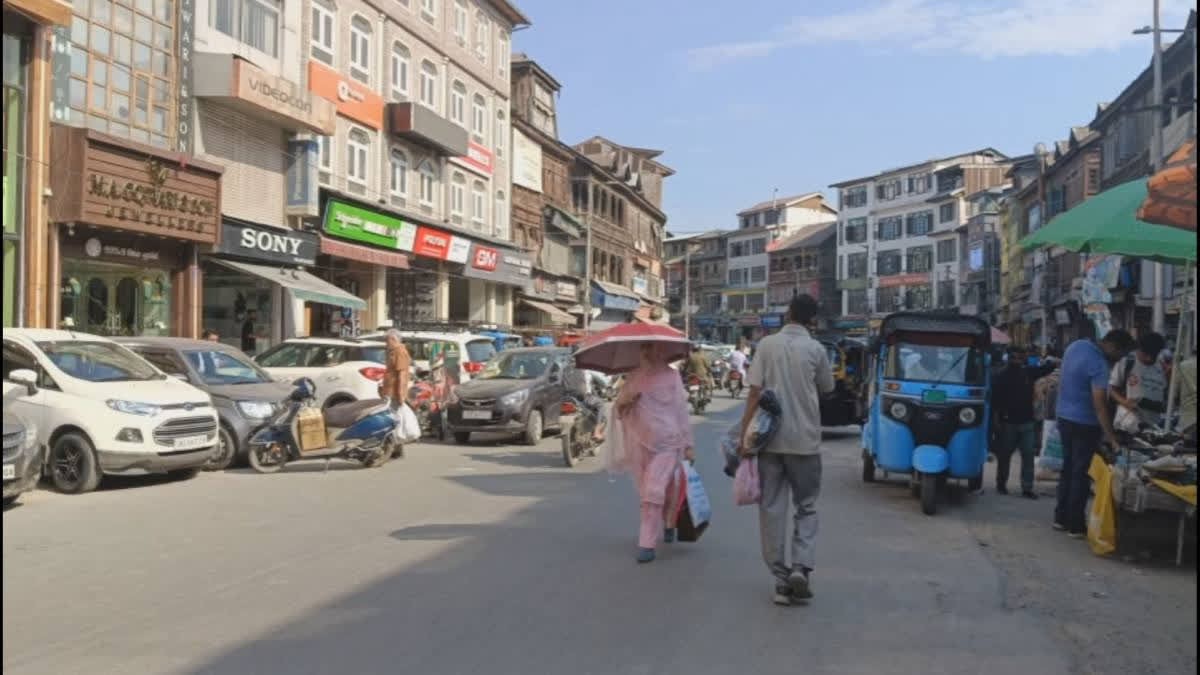Srinagar: The serene Kashmir Valley, known for its cool climes and picturesque landscapes, has been reeling under sweltering heat. In Srinagar, a city accustomed to moderate temperatures, residents are now seeking solace in chilled ice cream and sugarcane juice while umbrellas offer scant relief from the oppressive heat.
The mercury has soared 4-5 degrees above the normal, throwing daily life into disarray and raising alarms about water scarcity and the impact on agriculture. On Thursday, Srinagar's temperature peaked at a scorching 34.5°C, nearly five degrees above the seasonal average. Jammu fared little better, recording 35.6°C, 2.2 degrees above its normal.
The heatwave has shattered records, with Srinagar experiencing its highest July temperatures since 2000—35.7°C on July 4 and 35.6°C on July 24. Not since July 1999, when the temperature hit 37°C, has the city endured such extreme heat.
However, relief is on the way. The Meteorological Centre (MeT) forecasts isolated rains for the Kashmir division and scattered light to moderate showers for the Jammu division. From July 29 to August 1, widespread rainfall is expected across Kashmir, with continuous rain predicted in Jammu from July 30 to August 1.
The prolonged dry spell has left farmers in distress, threatening crop productivity. Officials from the Irrigation and Flood Control (I&FC) Department report that about 10% of irrigation schemes are impacted due to reduced water levels in the Jhelum River, which has decreased by 30% from normal capacity.
The shortage has also slashed power generation by over 15%, with hydroelectric projects struggling to produce even 1,000 megawatts, compared to a peak of 1,200 megawatts. Mukhtar Ahmad, a senior scientist at the Meteorological Department, highlighted the severity of the situation, noting that July's rainfall has been 70% below average, leading to a critical water crisis.
In response, the Kashmir Chamber of Commerce & Industry (KCCI) has urged the administration to close schools until the heatwave abates. The school education department has already adjusted school hours, starting the day earlier to avoid the peak heat.
Residents, grappling with the uncharacteristic weather, attribute the extreme heat to divine retribution for societal sins. They are finding it increasingly difficult to carry out their daily activities, with calls for extending school vacations gaining momentum.
Speaking to ETV Bharat, several residents attributed the change in weather and the heat to the sins committed by the population, suggesting that the Almighty is punishing them with diseases and the heatwave.
They expressed that they are struggling to leave their homes, offices and schools due to the unfamiliar climate. Some residents argued that announcing another round of school vacations is not the solution. They appreciated the administration's decision to change school timings, but felt that keeping children home is not the answer.
In these trying times, special prayers for rain have been offered under the auspices of Mirwaiz Kashmir Umar Farooq at the historic Jama Masjid Srinagar. The congregational prayer aimed to invoke divine mercy and bring much-needed rain to the parched valley.
Read more: Record Heatwave Grips Kashmir; Srinagar Records Hottest July Day In Over Two Decades



